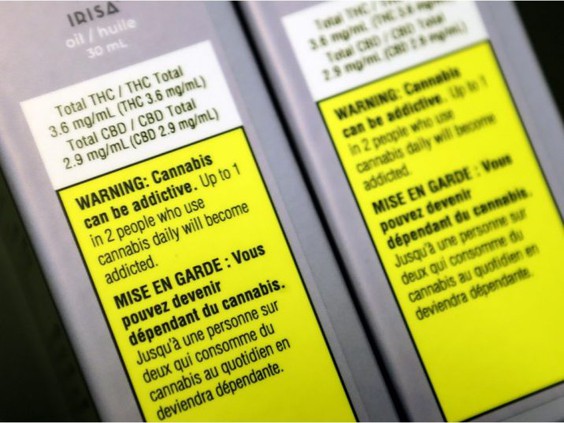You are here
Home 🌿 Medical Cannabis News 🌿 Canadian researchers say cannabis labelling would benefit from a more scientific approach 🌿Canadian researchers say cannabis labelling would benefit from a more scientific approach

A cannabis product label may clearly state indica or sativa, but a new scientific paper with a Canadian connection suggests the results may be more muddled, with the labels being “poor predictors of a sample’s genetics and chemistry.”
That may mean buyer beware for those specifically wanting sedating or uplifting effects . A purchaser may be expecting certain distinct aromas or psychoactive effects — based on the indica or sativa tag — but that’s not necessarily what they’re going to get.
As it stands, breeders label their cannabis strains using indica and sativa and retailers, in turn, “rely on these labels to market their products, and consumers believe these labels are meaningful,” Myles relays.
“But there is now broad scientific consensus that the current use of indica and sativa is misleading,” he says in a statement from Dalhousie University.
Creative names for cannabis strains, such as Lemon Haze and OG Kush, also proved a bust in terms of accurately indicating chemistry and genetics.
Creative names for cannabis strains, such as Lemon Haze and OG Kush, also proved a bust in terms of accurately indicating plant chemistry and genetics.
Indeed, investigators “found pairs of strains with the same name are often just as different genetically and chemically as pairs of strains with different names,” the university statement notes. “Labels and strain names do a poor job of informing consumers about what they are consuming,” Myles notes.
For some, concern over labelling is more than simply an inconvenience. “For patients consuming cannabis as medicine, this is particularly concerning,” says Robin van Velzen, a study co-author and lecturer at Wageningen University & Research.
“There is now broad scientific consensus that an evidence-based naming convention is required for the cannabis industry,” Van Velzen contends.
In light of the findings, labelling “would benefit from a more scientific approach when it comes to marketing the product,” according to the Dalhousie University statement.
That could be achieved, researchers suggest, if the industry provides more transparency on chemical composition. “Producers should display the terpene profiles instead of an unreliable name like indica or sativa,” Van Velzen argues in a statement from Wageningen University.
Although some companies have adopted just such an approach, he adds, “there is no standardized measuring and naming convention. Reliable information is essential, particularly for medicinal uses.”
420 Intel is Your Source for Marijuana News
420 Intel Canada is your leading news source for the Canadian cannabis industry. Get the latest updates on Canadian cannabis stocks and developments on how Canada continues to be a major player in the worldwide recreational and medical cannabis industry.
420 Intel Canada is the Canadian Industry news outlet that will keep you updated on how these Canadian developments in recreational and medical marijuana will impact the country and the world. Our commitment is to bring you the most important cannabis news stories from across Canada every day of the week.
Marijuana industry news is a constant endeavor with new developments each day. For marijuana news across the True North, 420 Intel Canada promises to bring you quality, Canadian, cannabis industry news.
You can get 420 Intel news delivered directly to your inbox by signing up for our daily marijuana news, ensuring you’re always kept up to date on the ever-changing cannabis industry. To stay even better informed about marijuana legalization news follow us on Twitter, Facebook and LinkedIn.




